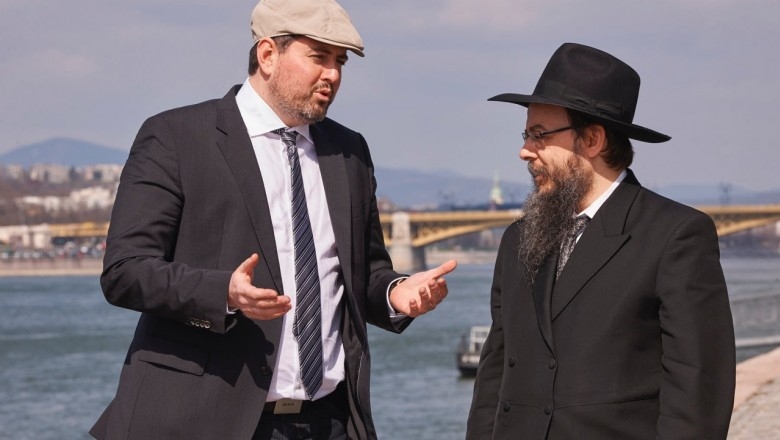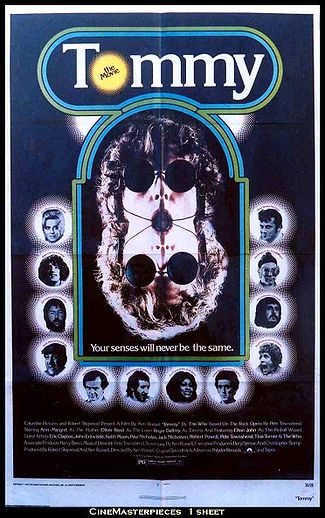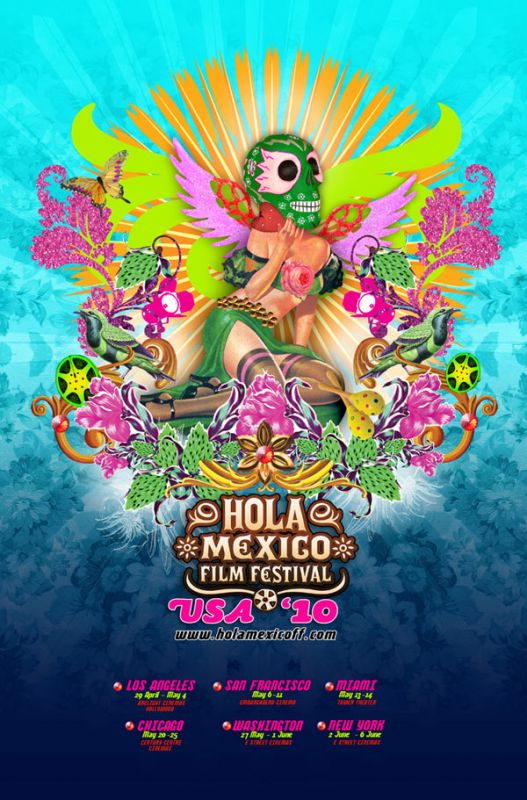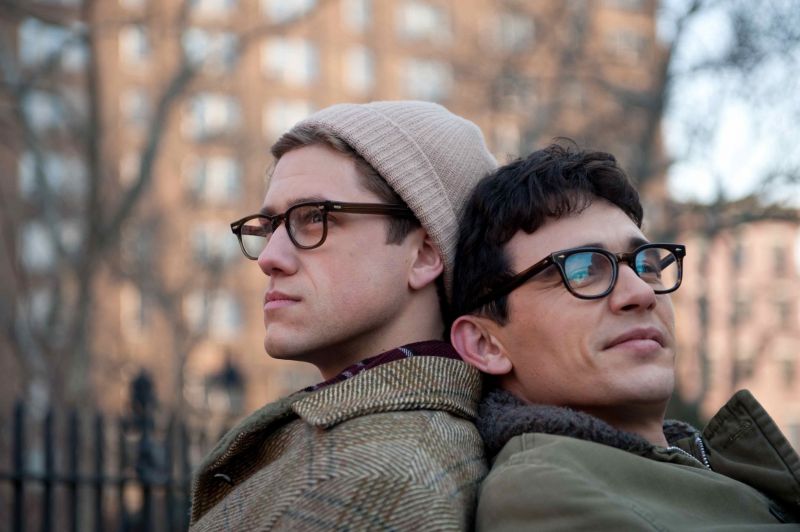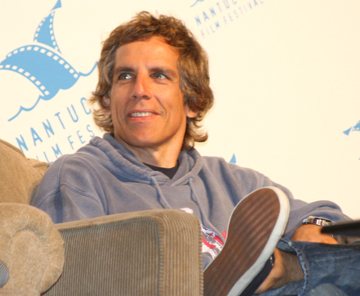|
|
||
|
Pro Tools
FILMFESTIVALS | 24/7 world wide coverageWelcome ! Enjoy the best of both worlds: Film & Festival News, exploring the best of the film festivals community. Launched in 1995, relentlessly connecting films to festivals, documenting and promoting festivals worldwide. Working on an upgrade soon. For collaboration, editorial contributions, or publicity, please send us an email here. User login |
"Keep Quiet": Tribeca Film Festival 2016
What to do if you’re a raging anti-Semite and you discover your Jewish roots? As probed in the documentary Keep Quiet, it’s the stunner that Hungarian ultra-nationalist Csanád Szegedi began grappling with when his maternal grandparents were outed as Jews. Keep Quiet opens by showing family snapshots in nostalgic black-and-white. Yet any stirring of sentimentality is quickly dashed with a caveat about what happens “when you base your story on a lie.” With that, the gauntlet is thrown down to inspect authenticity along each step of Szegedi’s path. A romance with fascism, and its accompanying contempt for otherness, is so prevalent in Szegedi’s world that its cadres go in for manipulation and distortion, at least in the public realm. In 2008, at age 26, the peppery upstart became Vice President of the far-right Jobbik party. The previous year he had helped found the Hungarian Guard, a militia inspired by the pro-Nazi Arrow Cross party that killed thousands of Jews during WWII. Filmmakers Joseph Martin and Sam Blair foreground much of this information with news footage and stills, including of Szegedi in the black uniform of the Guard addressing the European Parliament. As a result, the film is a portrait not just of the Hungarian changeling, but of his tortured homeland, especially as it gave way to economic and social crisis in the 00s. As engrossing as it is timely, the lookback is bolstered by a running interview with Szegedi. Keep Quiet’s sense of putting its protagonist on trial is accentuated by his confessional musings during these up-close if not-always-personal takes. The now-30-something, whose imposing girth suggests something of a fortress, seems torn between seeking absolution from the camera and challenging it at the same time. Is Szegedi a man of complexity or a simple organism who runs to extremes? Perhaps one hint comes with commentator Anne Applebaum’s observation that Jobbik “offered power to Hungarian youth” and that Szegedi “was one of those…who needed to be part of something bigger.” That something radically flipped once “the Jewish bomb took everything in its path,” as Szegedi describes his brutal freeze out by Party devotees once the truth about his bloodline sunk in. He resigned from the party a desperate man, with “nowhere to turn” but the very community he had long considered anathema. Other Hungarians had also stumbled onto their Jewish identity, he reasoned, so the spiritual leader of a shul would have some experience in offering guidance. To judge by Szegedi’s self-reinvention, Chabad Lubavitch Rabbi Boruch Oberlander was the right man for him; together the lost soul and the saver of souls nudge the film towards odd-couple territory and into redemptive drama. Oberlander, eyes twinkling, recalls wondering what he’d do should Szegedi contact him, just as the call came in. What does Judaism say “about a guy like Csanád who comes to shul?” Is an anti-Semitic Jew still a Jew? These and related questions sent the Brooklyn-born rabbi on an ethics intensive. He would come under fire for accepting Szegedi into the fold, but, as he explains, he deferred to Halakhic code governing the provision of help.
Cinematographer Márton Vízkelety plays with reflected images to recreate Szegedi’s blurred identity upon approaching the Orthodox synagogue for the first time. It’s an effective visual strategy that lets you begin to imagine the dissonance within. Szegedi remembers feeling like “a gladiator entering the arena,” and how wearing a kippa “burned his head.” Later, watching him lay tefillin and read from the Torah with the finesse of a Yeshiva bokher, you are struck by the magnitude of his quest. Certainly one of the most surreal shots of the film is of Szegedi dancing with his new tribe’s bearded, black-hat-domed elders to celebrate his circumcision. Bobbing around the Rabbi’s home, the former Nazi sympathizer proclaims this defining rite as his “Bar Mitzvah.”
Nonetheless, you watch the film wondering if Szegedi is entirely kosher. Fanning that confusion is his repartée with Holocaust survivor Eva “Bobby” Neumann during a train ride to Auschwitz taken after Szegedi’s grandmother had died. Szegedi not only seems to equate the Holocaust with such wartime losses as the siege of the Don River, but he also insinuates that by “refusing to assimilate,” by upholding “cosmopolitan” views and by obsessing over the Holocaust, Jews are “responsible” for their pariah status. Does Auschwitz get through to Szegedi? Eyeing the cramped bunks where multiple inmates piled in at night and hearing Neumann’s stories corroborate those he’d heard from his grandmother, he learns that the random shooting scene in Schindler’s List is not just some movie invention, and that his long-standing quasi-denials may well be misguided. On another outing he and Rabbi Oberlander visit the dilapidated Jewish cemetery where Szegedi’s maternal forebears are buried. That the born-again Jew restores his great-grandmother’s gravestone so moves his grandmother that she allegedly thanks him on her deathbed. Ultimately the film’s theme of secrets and lies converge on that very blond, blue-eyed grandma, who, upon liberation from the death camp chose to “keep quiet” and always cover her arms so no one would see her tattoo. Szegedi's mother was 14 when her father (who had spent the war in an internment camp) informed her of the family's Jewish origins. However, for fear of "another Auschwitz,” she was pledged to silence, and her non-Jewish husband was welcomed as a hedge against future deportations. Although Szegedi’s interactions with his grandmother clearly convey warmth, Keep Quiet keeps a little too quiet about what she meant to him coming up. Martin and Blair make greater headway with how Szegedi felt when he first confronted his grandmother and mother about rumors of their Judaism that were bruiting about: “unspeakably terrified” is one way he puts it. And “the word ‘Jewish’ was like a dagger in my heart” is another. To what extent is Szegedi still riddled with qualms? Despite the ample vérité footage of his immersion in his new faith, Keep Quiet ends on an ambiguous note. “I don’t know what’s going to be tomorrow,” Szegedi says about his plans to stay the Jewish course. Should you find this editing choice vexing, you’re not alone. “I think it’s very wrong to put it in as if he (has any doubts),” Rabbi Oberlander told me following the film’s world premiere at the Tribeca Film Festival. “It’s taken out of context — I don’t see that he has any doubts. In a way every person could say, ‘I don’t know what’s going to be tomorrow.’ But people take it as, ‘Oh, he doesn’t know what’s going to be tomorrow!’ The Rabbi pressed on with his critique, which he said he’d shared with the filmmakers. “No, no, it’s exaggerated. If it would be in the film somewhere in the middle…but this is in the end.” The filmmakers’ intent was not to impugn their subject’s genuineness, as Blair assured me at the same Tribeca event. “If the film ended on an absolute positive or an absolute negative, I think people could react as if it is making a definitive statement,” he said, adding, “I felt that a question is the right way. I don’t think it’s negative. I think it shows maybe a newfound thoughtfulness on his behalf.” Where does Szegedi himself come down on the film’s coda? He too spoke with me at the premiere, through a translator: “My message was that I can’t guarantee a promise for the future. I left Jobbik four years ago and I haven’t regretted anything of these past four years,” he said, noting that he frequently visits schools around Hungary to “tell the students not to be anti-Semites.” Continued Szegedi, “I’m trying to experience Judaism and make it a part of my life, and I’m trying to utilize my experiences for a common purpose. I keep studying Judaism. I hope I can continue to learn. Next week will be Seder evening. My plan is continue my journey on this road, but God knows what (will happen).” Spoken like a man with a long memory of expulsion, persecution and plague. 17.04.2016 | Laura Blum's blog Cat. : Csanád Szegedi Hungarian jewish Jobbik Party Joseph Martin Keep Quiet Neo-Nazi Rabbi Boruch Oberlander Sam Blair Tribeca Film Festival Independent
|
LinksThe Bulletin Board > The Bulletin Board Blog Following News Interview with IFTA Chairman (AFM)
Interview with Cannes Marche du Film Director
Filmfestivals.com dailies live coverage from > Live from India
Useful links for the indies: > Big files transfer
+ SUBSCRIBE to the weekly Newsletter Deals+ Special offers and discounts from filmfestivals.com Selected fun offers
> Bonus Casino
User imagesAbout Laura BlumThe EditorUser contributions |


















